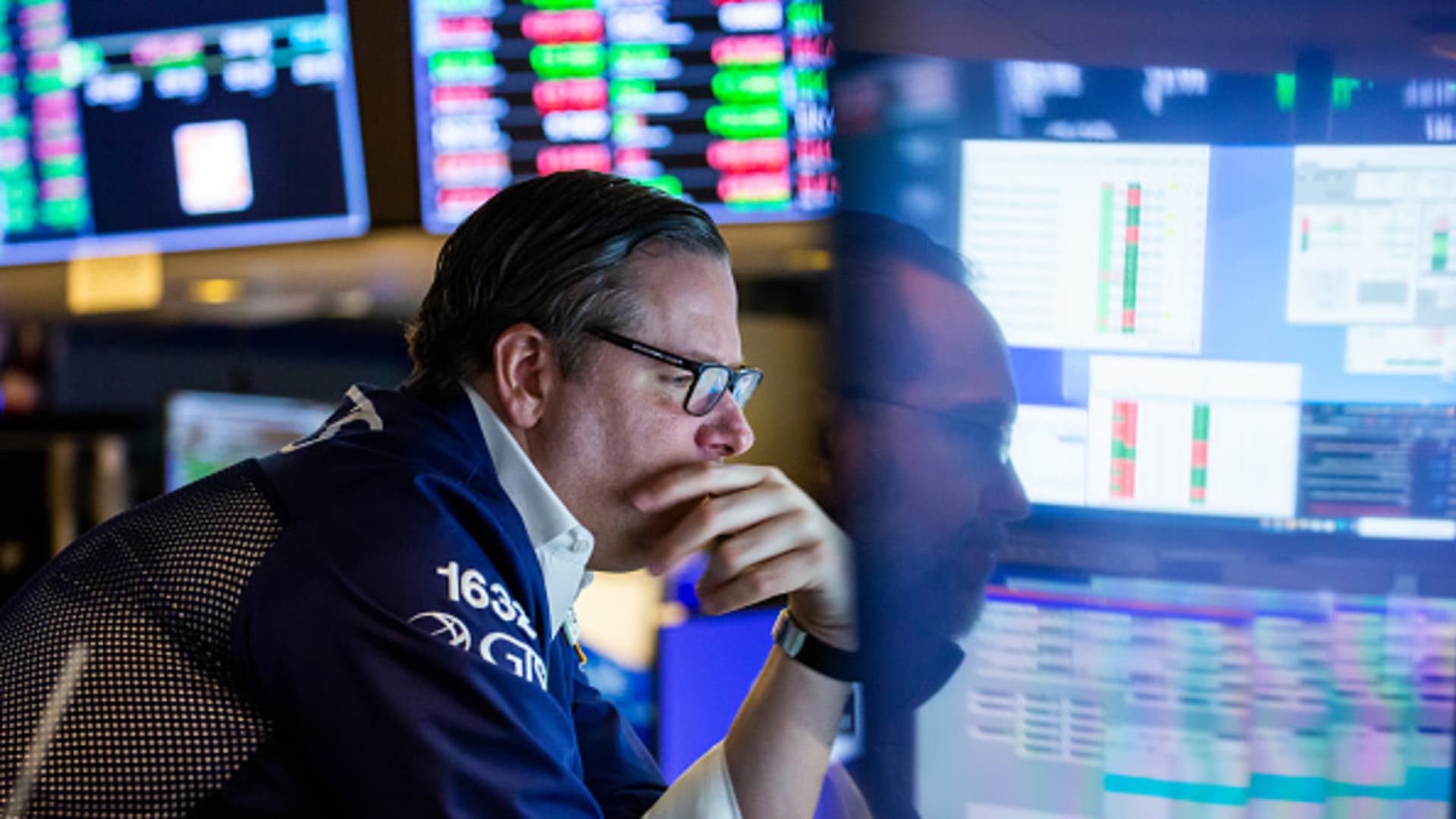
LONDON — The global economy is likely entering a “war-cession,” according to veteran investment strategist David Roche, and markets are underestimating its duration.
It comes as markets attempt to navigate a flurry of concurrent economic hurdles, including Russia’s invasion of Ukraine, soaring inflation, rising interest rates and supply disruption from China’s efforts to contain a Covid-19 outbreak.
Speaking to CNBC’s “Squawk Box Europe” on Friday, Roche, president of Independent Strategy, suggested that evidence of atrocities committed against civilians in Ukraine by Russian forces will prevent any possibility of a swift peace negotiation with Russian President Vladimir Putin.
As such, the West’s only option is to seek regime change in Russia, he said, given that Putin cannot be seen domestically to withdraw from Ukraine without a “victory.”
“He is not going to trade withdrawal for any ratcheting down of sanctions, so the sanctions stay in place and I think the implications for Europe are that you will see recession, because the sanctions will actually increase and move towards a total energy blockade,” Roche said.
EU countries last week agreed to a suite of new sanctions on Russia, in light of reported cases of sexual violence and the torture and executions of civilians, including a full embargo on Russian coal imports. Europe is also considering additional measures including a full embargo on imports of oil, coal, nuclear fuel and gas.
A rocket attack on a crowded train station in the eastern Ukrainian city of Kramatorsk on Friday killed more than 30 people and injured more than 100. It comes after Russian forces switched their assault to eastern Ukraine following their withdrawal from towns around the capital of Kyiv.
Ukrainian officials have warned that further atrocities are likely to be uncovered in towns recaptured from retreating Russian soldiers, and Roche argued that investors will no longer be able to separate politics from markets.
“This is an enormous supply-side shock that will continue in food, in energy, in metals and I can go on. That will go on while at the same time, we’re dealing with inflation worldwide, we’re dealing with rising interest rates – I think the 30-year [Treasury yield] will be at least 3.5% in a year’s time – and we’re looking at, of course, supply disruptions in China due to what is happening on Covid, which people are not talking about, but which are obviously another supply side to the global system,” he said.
‘War-cession’
Roche suggested that this will be too much for stock markets to overcome in order to continue grinding higher, and argued that historically high inflation will not fall off as economic growth slows, as would ordinarily be the case in a normal recession.
“In a normal recession, output and demand go down, inflation goes down. In this sort of a recession, a ‘war-cession,’ you actually have output which falls at the same time as costs and inflation rise,” he explained.
“You’re seeing that in the mismatch in the labor market, you’re seeing that in the price of commodities, and I think that will continue to push through, so you’re faced with a very strange situation where central banks have to choose between their inflation target and growth.”
Investors have been closely monitoring central bank comments to assess the likely pace of monetary policy tightening as policymakers try to contain inflation, but Roche suggested any talk of policy rates going “over the hump” in the coming years is “premature.”
“When the pain does become extreme on the output and performance, growth side of the economy, of course they will slip back, but I think it’s going to take a lot longer to happen than the equity market assumes,” he said.






